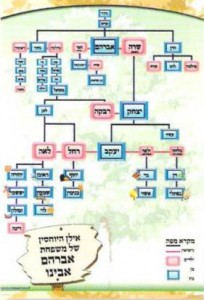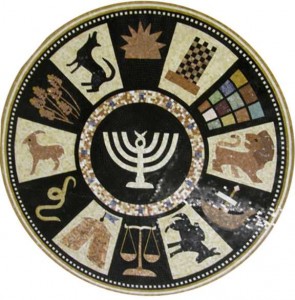Jun 20, 2016
Posted by Scripture Solutions on Jun 20, 2016 | Comments Off on Proverbs for Living Skillfully
Automaker Henry Ford hired electrical genius Charlie Steinmetz to build the generators for his factory. One day the generators came grinding to a halt, and the technicians couldn’t find the problem. Ford called Steinmetz, who tinkered with the machines for a few hours and then threw the switch. The generators whirred to life–but Ford got a bill for $10,000 from Steinmetz. Flabbergasted, the rather tightfisted car maker inquired why the bill was so high.
Steinmetz’s reply: For tinkering with the generators, $10. For knowing where to tinker, $9,990. Ford paid the bill (Today in the Word, MBI, April 1990, p. 27.).
Today we place more value on our unproductive, frantic efforts than the wisdom involved in “knowing where to tinker.” After all, “knowing where to tinker” is more than a mere indicator of knowledge, but a sign of wisdom. Anyone can offer a reasonable guess regarding the nature of a problem we are facing. However, it takes wisdom to know how to apply that speculation and make a wise choice that leads to a resolve.
Nested in the midst of the books of Wisdom (Job, Psalms, Proverbs, Song of Solomon, Ecclesiastes) is a goldmine of biblical counsel for learning how to live skillfully. King Solomon’s Book of Proverbs is a much neglected biblical work that contains timeless truths that show us “where to tinker” in the major issues we face everyday.
One of the areas where followers of Jesus are forever tinkering in trying to determine God’s will. Christians spend precious time in this endless and often fruitless pursuit. Good news! The Book of Proverbs is God’s guidebook for finding His will. This is the major source in the Scriptures that reveals not merely the information about God’s will, but discloses “where to tinker.”
Once we have read and understood this work of wisdom, we will no longer need to speak of “discovering God’s will.” His plan for our lives becomes more apparent the deeper we dig within Solomon’s volume of wisdom.
Besides being a manual that enables us to understand the ways of God, the Book of Proverbs describes the qualities of spiritual character. As we will discover in Solomon’s sayings, possessing spiritual character goes hand-in-hand with grasping the will of God. (more…)
Nov 7, 2014
Posted by Scripture Solutions on Nov 7, 2014 | 2 comments
The question of forgiving one another has plagued me ever since I became a follower of Jesus. I heard many pastors and Bible teachers comment on this subject, but I did not feel they were teaching the message of the biblical text. Instead, what I was hearing was helpful common sense advice and psychological healthy ways to look at the way we should forgive one another.
Recently a good friend of mine whom I deeply respect, challenged me on my beliefs regarding the need for repentance as a condition for forgiveness.
Where I agree on this issue with my friend is that we both are in harmony that for a person to be reconciled with God, there must be a display of contriteness or repentance to experience the eternal forgiveness of God. This is designated “vertical forgiveness” because it takes place between man and God.

Forgive One Another
Where my friend and I disagree is whether or not repentance is necessary when we as humans forgive one another. If I offend another person, do I need to go to that person or have that person come to me so that I can confess my sin, state my intention to repent and ask for that person’s forgiveness?
My friend’s viewpoint is that we can forgive the other person through the forgiveness Jesus obtained for us through His death on the cross. The grace of God shown in the sacrificial death of Yeshua on the cross should so overwhelm us, that the natural outflow of our awe towards God’s love is to forgive others because God has shown His merciful forgiveness to us through His Son.
There is not always the need for repentance when there is “vertical forgiveness.” On the basis of the atonement we have in the Messiah, we forgive one another. with or without any display of repentance. In the Sermon on the Mount, in the Lord’s prayer in Matthew 6:12, we read, “And forgive us our debts, as we also have forgiven our debtors (NIV). (more…)
Apr 4, 2014
Posted by Scripture Solutions on Apr 4, 2014 | Comments Off on Not All Israel Is Israel Part 3
The controversy over God’s continuation of Israel as a viable nation despite their rejection of Jesus as their Messiah looms large in the Christian church.
Most followers of Jesus are not even aware of the various Christian theologies regarding the Jewish nation. Yet when uninformed evangelicals are exposed to such anti-Israel beliefs such as Replacement Theology (the view that Israel is no longer God’s elect people but replaced by the Church), these Christians are conflicted over what they are hearing and what the Bible teaches.
As a representative of Replacement Theology (though he prefers the term “Fulfillment Theology”) Gary Burge, New Testament professor at Wheaton College, in his book Whose Land? Whose Promises? the author states, “Abraham can become the father of many nations because when Gentiles share in Abraham’s faith, he becomes their father too (Romans 4:16). Physical lineage, therefore, has been spiritualized into a lineage based on faith (emphasis mine). The ‘land of Israel’ is likewise spirtualized now to include the entire world” (pg. 182).

The key concept to focus on from Burge’s theology is, “physical lineage . . . has been spiritualized into a lineage based on faith.” Israel is no longer a physical nation, according to the Wheaton professor, but has become a spiritual entity that one enters into by faith in Christ not by physical heritage through Abraham. If the physical seed has been “spiritualized” then the “physical” is no longer relevant, hence the physical nation of Israel is moot to God’s spiritual program.
The glaring mistake Burge makes is twofold: first, the physical lineage of a member of the nation of Israel never implied the individual within the nation has a relationship with God, and second, within the physical nation of Israel there has always existed a spiritual remnant of Israelites who remained faithful to God. These two truths do not redefined the nation of Israel, but describe the reality of a spiritual remnant within the physical Jewish nation.
In contrast to Gary Burge’s fulfillment theology which pushes aside God’s plan for the physical nation the Apostle Paul teaches that Israel still exists as a nation even after the first coming of the Messiah. In Romans 9:3-4a Paul pleads, “For I could wish that I myself were cursed and cut off from Christ for the sake of my people, those of my own race, the people of Israel.” To Paul, “those of his own race” are “the people of Israel” quite alive and not replaced by or fulfilled in the New Testament church. (more…)
Mar 20, 2014
Posted by Scripture Solutions on Mar 20, 2014 | Comments Off on Not All Israel is Israel Part 2
To many students of the Bible Paul’s comment in Romans 9:6 that “not all who are descended from Israel are Israel” (NIV) sounds very strange. Is Paul saying the part of Israel that is “descended from Israel” is no longer part of the nation known as Israel? Then that would mean the only people who are actually Israelites are Jewish people who believe in Yeshua as Messiah and the “not all who are descended from Israel ” group are no longer members of the Jewish nation. Yet if you follow that logic, any examples of the NT apostles addressing the segment of the Jewish nation who have not accepted Yeshua as Messiah as still “Israel” makes no sense.
Check out these examples from the New Testament:
Acts 2:22: “Fellow Israelites, listen to this:
Acts 2:29: “Fellow Israelites, I can tell you confidently that the patriarch David died and was buried, and his tomb is here to this day.”
Acts 2: 36: “Therefore let all Israel be assured of this: God has made this Jesus, whom you crucified, both Lord and Messiah.”
Acts 3:12: “When Peter saw this, he said to them: “Fellow Israelites, why does this surprise you?”
Acts 3:17: “Now, fellow Israelites, I know that you acted in ignorance, as did your leaders.”
Acts 4:10: “then know this, you and all the people of Israel: It is by the name of Jesus Christ of Nazareth, whom you crucified but whom God raised from the dead, that this man stands before you healed.”
No wonder Christians are befuddled by Paul’s reference to two Israel’s in Romans 9:6.

Twelve Tribes of Israel
In light of Paul’s head-scratching use of the phrase, “”not all who are descended from Israel are Israel”, Christian theologians come up with explanations that confuse the issue even more.
My favorite explanation is the one that states unbelieving Israel has been replaced by the Church. This is called “replacement theology.” In this theological system, “Israel” that accepted Yeshua is none other than the Church. Rather than create clarity, Replacement Theology (aka disguised as Fulfillment Theology or Transformation Theology or Promise Theology) contributes more fuzzy thinking since the reader of the New Testament is forced to think “Church” when he reads the term “Israel”. Try to think “Church” in reading Romans 11:26, “and in this way all Israel will be saved.” Thanks, but no thanks. (more…)
Mar 11, 2014
Posted by Scripture Solutions on Mar 11, 2014 | Comments Off on Christ at the Checkpoint Position Paper by Israeli Messianic Jews
A Position Paper of the Messianic Jewish Community regarding the Christ at the Checkpoint Conference (CatC)
1. The Word of God: the Tanakh and the New Covenant Scriptures together, are the one true, infallible, and unalterable standard of truth and life for all believers. As Yeshua our Messiah declared, “Your Word is truth” (John 17:17) and “The Scripture cannot be broken” (John 10:35). Therefore we affirm that “all the promises of God are ‘Yes’” and ‘Amen’ (not abrogated) in Yeshua (II Cor. 1:20), and that “the gifts and calling of God” for His chosen people, Israel, “are irrevocable” (Romans 11:28b-29 in context). “God has not rejected his people whom he foreknew!” (Romans 11:2). Rather, “to them belong [present tense!] the adoption as sons, the glory, the covenants, the giving of the law, the temple worship, and the promises” (Romans 9:4).
2. The Messiah Yeshua’s calling for His Body — in the Land of Israel and throughout the world — is to “make disciples of all the nations” (Matthew 28:19) by proclaiming “repentance for the forgiveness of sins…in His name to all nations” (Luke 24:47). Every movement or activity which does not promote or which, on the contrary, distracts us from that central purpose and calling is not of God, no matter what biblical or spiritual language may be used to describe it. Yeshua never commanded, or even suggested, that His followers were to “bring in” the Kingdom of God on earth. Yeshua Himself promised to establish His Kingdom upon His return (Matthew 25:31, 34), and we, who are heirs of His Kingdom and proclaimers of it in the present age (James 2:5; Acts 28:23, 31), are instructed to pray for that day to quickly come (Matthew 6:10; cf. Philippians 3:20-21).
3. Christ at the Checkpoint is, therefore, a false messianic movement, arrogating to itself the role of Messiah in establishing the Kingdom while promoting a humanistic, political “liberation theology.” [All the “evangelical” CatC speakers reflect the same approach and goals, as is evident from the Kairos Document which Yohanna Katanacho, CatC Committee member, helped compose and Bethlehem Bible College endorsed]. Although cloaking its “mandate” in biblical language (“the teaching of Jesus on the Kingdom of God”) and using seductively positive terms (“Peace, justice, and reconciliation”), this movement has one overriding purpose: to sway Evangelical believers worldwide away from belief in the eternal promises of God to Israel by slandering the Jewish people and delegitimizing the Jewish state; painting Israel as a wicked, oppressive, apartheid “entity”—especially in contrast to the supposedly ‘democratic, tolerant and peace-seeking’ Palestinian Authority and people. There is no Gospel here! (more…)










